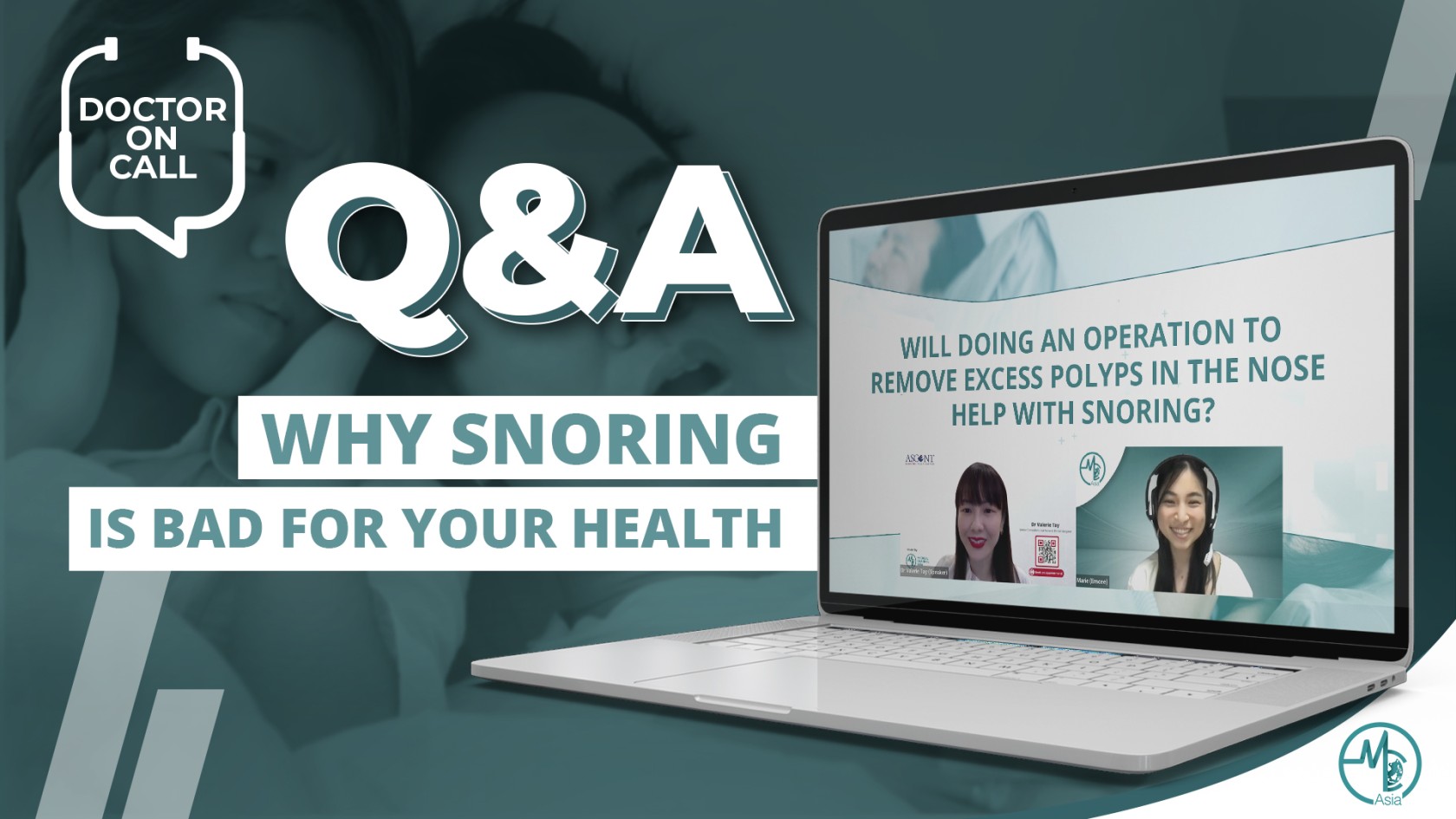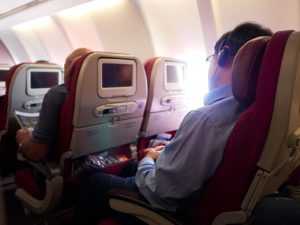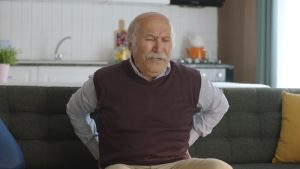Doctor On Call, or DOC for short, is a brand new series brought to you by Medical Channel Asia. This series aims to bring doctors and specialists from various fields to give you an introduction to common health and medical topics that you and the Asian population are interested in. In our 10th DOC, held on 18 March 2022 (Wednesday) in line with World Sleep Day, from 8 pm to 9 pm (GMT+8), we have Dr Valerie Tay, Senior consultant Ear, Nose and Throat surgeon, ASCENT ENT Specialist Group, to talk to us about Obstructive Sleep Apnea (OSA). Read on to learn more about OSA and snoring.
PSA: Medical Channel Asia (MCA) is now on Telegram! Join us here https://t.me/MedicalChannelAsia for daily reads and the latest updates at your fingertips!
For Part 1 of the forum, we have Dr Valerie Tay give us a presentation on airway anatomy, risk factors and complications of OSA as well as treatment options in both adults and children.
In Part 2, Dr Valerie Tay goes through many questions posted by our enthusiastic audience, both collated from the registration process, and also posted LIVE. Read below to find out more about sleep apnea.
Question and Answer – Pre-collated segment
Q1: Will doing an operation to remove excess polyps in the nose help with snoring?
The obstruction of the nose can contribute to sleep apnea, but it is not usually the cause. The operation to remove excess polyps is still important as a part of other treatments for OSA. For example, breathing better through the nose after the surgery helps with the use of CPAP mask at night. It can improve the symptoms and make it easier to use the CPAP machine, but it is not a cure for OSA.
Q2: Can exercising the tongue strengthen the muscle, thus preventing snoring?
In the last five to eight years, there have been more research and studies done on myofunctional training. It is a group of exercises done to strengthen the jaw, and tongue muscles in various positions so as to improve muscle tone. Studies done have shown improvement in snoring in about 50% of patients, and in certain patients it also improves the OSA. However, it is not suggested as an isolated treatment and should be used in conjunction with other types of treatment.
Question and Answer – LIVE
Q1: Where can I undergo a sleep study in Singapore?
It is advised to see an ENT surgeon to assess the airway anatomy and the need for a sleep study. The ENT surgeon will arrange the sleep study, in the hospital (sleep centre) or at home. At home, it may be easier for one to fall asleep and for good readings to be collected. However, if the sleep study is conducted in the hospital, technicians are available to help in case of any difficulties (e.g. electrodes falling off)
Q2: Why is going toilet to urine frequently at night related to obstructive sleep apnea (OSA)?
With OSA, the patient will experience an increase in abdominal pressures and an increase in the secretion of the atrial natriuretic peptide (ANP) hormone, which causes an increase in the production of urine. Hence, they may need to wake up at night to pass urine. However, if the patient has a prostate problem, it can contribute to the same symptom. Prostate enlargement should also be evaluated for men experiencing the symptom of frequent night-time urination.
Q3: I feel like my sleep is not good, but my husband doesn’t complain about any snoring from me. Is it possible that I have sleep apnea but without any snoring?
Poor sleep can be due to many causes, sleep apnea is just one of them. For example, insomnia, stress, and poor sleep hygiene can also result in poor sleep. You may evaluate other possibilities of poor sleep as well.
Q4: My child has eczema and allergic rhinitis, which causes mouth breathing, but I don’t think he has OSA. Should I be worried? I think he will grow out of it like my husband, who had childhood asthma.
Children who have allergies, especially allergic rhinitis, may have enlarged adenoids. The child should have his nose scoped to check for enlarged adenoids and to address them if found. If left untreated, there are many consequences such as poor concentration in school, reduced motivation, poor appetite, and poor academic results.
Q5: If I have never had any episode of tonsillitis, have a normal BMI and have no medical history, is it alright to do tonsil surgery?
Tonsilitis is not the only reason to do tonsil surgery. For example, snoring, obstructive sleep apnea, possibility of a tumor (if only one side is enlarged), previous history of severe tonsil infection etc. More information is required, do seek consultation with your doctor.
Q6: What if an adult male is overall healthy with no other symptoms except for loud snoring at night – is it necessary to take corrective action?
Snoring can affect other people such as the other family members, or the sleep partner. Corrective surgery can help to reduce snoring which is affecting other people. However, if you sleep alone, you can leave the snoring alone as snoring without OSA does not cause any complications.
Q7: Can a child use CPAP?
Yes, children can use CPAP. However, compliance may be poor as the mask is uncomfortable around the face and nose and the child may not be agreeable. Removal of tonsils and adenoids is a fast surgery with quick recovery for children.
Q8: I am on a CPAP machine, must I use it every day? Sometimes I am lazy to use it, or I fall asleep and forget to use it. Is it ok?
Yes, unfortunately, to achieve the benefits of CPAP, it should be used every day. It is suggested that one should use it for at least 5 hours a night, 5 days a week. Using it for a short duration or infrequently will not help to promote good sleep.
Q9: What is the success rate for sleep apnea surgery? Will it be able to cure OSA completely in one procedure?
Overall, the success rate is about 50%. This is highly dependent on the patient’s anatomy, and whether they are obese. Sleep apnea surgery is not as successful in patients who are obese. For patients who have a BMI >30-33, sleep apnea surgery is usually not done. In an ideal patient who is slim, with large tonsils and a floppy palate, the success rate will be higher.
Surgery is typically used as an adjunct to other treatments such as the CPAP machine. For example, after surgery, if there is still OSA, the CPAP will still be used.
Q10: Are CPAP machines expensive? Where can I buy them?
CPAP machines vary in price, it can be from mid-high hundreds (SGD), to even a couple of thousand dollars (SGD). It will depend on the device, the functions, and the size/portability of the device. Many medical device companies distribute CPAP machines.
Q11: Are there any special positions to sleep in for better breathing?
In some patients, they have ‘positional OSA’, which means that the OSA is relieved (AHI drops) when they lie on their side. This can be determined in the sleep study. If patients sleep better or snore less when they lie on their side, they can do so to relieve their symptoms. There is a device (that may or may not be available depending on your region) that delivers gentle vibrations that prompt the patient to shift to their side if it senses that the patient is lying on their back. Otherwise, there are not very many methods to help maintain sleep positions.
Q12: Can one develop sleep apnea as they age?
Yes, age is a risk factor for obstructive sleep apnea (OSA)z.
Q13: Is there any known link between OSA and the risk of getting nose or throat cancer?
No.
Q14: Are there any sleep apnea surgery complications?
Complications stated will be general as there are many different types of sleep apnea surgeries.
- Nose/Throat bleeding
- Post-operative pain
- Weight loss from difficulty eating
Q15: Will one be reliant on a CPAP machine forever?
Yes, you will need to use the CPAP machine for as long as you have the condition. If you don’t go for surgery or lose weight, the OSA condition can worsen over time due to age and the loss in muscle tone. Using the CPAP machine can lead to significant benefits: improved sleep quality, and improved relations with family and loved ones.
What’s next in store?
- Click here to see Dr Valerie Tay’s presentation in Part 1 if you have missed it!
- If you have missed our previous DOC webinars, visit our Medical Channel Asia’s YouTube page, or you can also read the articles:
- Doctor On Call (DOC): Dr Sean Leo – Common Sports Injuries Part 1, Part 2
- Doctor On Call (DOC): Dr Lee Fang Jann – Men’s Health Part 1, Part 2
- Doctor On Call (DOC): Dr Felix Li – Medical Aesthetics Part 1, Part 2
- Doctor On Call (DOC): Dr Michael MacDonald – The Silent Killer Part 1, Part 2
- Doctor On Call (DOC): Dr Jade Kua – DARE to Save a Heart Part 1, Part 2
- Doctor On Call (DOC): Dr Radhika Lakshmanan – Facts and Myths of Breast Cancer Part 1, Part 2
- Doctor On Call (DOC): Dr Julian Tan – Ischemic Heart Disease Part 1, Part 2
- Doctor On Call (DOC): Dr Leong Hoe Nam – Long COVID Part 1, Part 2
- Doctor On Call (DOC): Dr Eugene Yeo & Dr Toh Ee-Lin – Colorectal Cancer Part 1, Part 2












